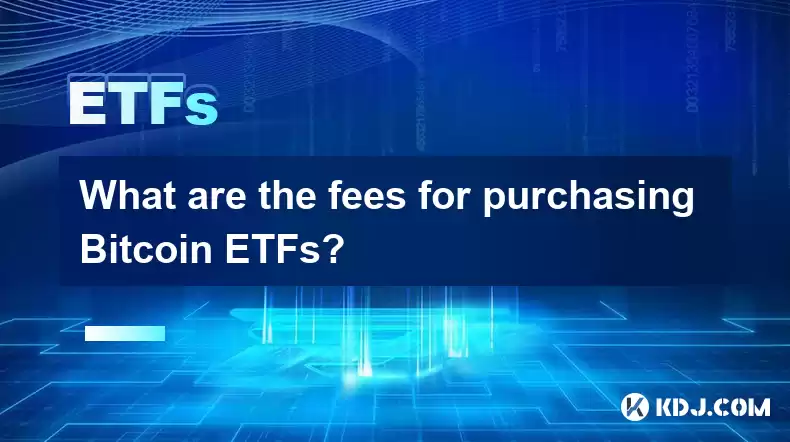-
 Bitcoin
Bitcoin $112400
-1.07% -
 Ethereum
Ethereum $3409
-3.27% -
 XRP
XRP $2.784
-6.60% -
 Tether USDt
Tether USDt $0.9997
-0.03% -
 BNB
BNB $739.3
-2.09% -
 Solana
Solana $158.0
-2.90% -
 USDC
USDC $0.9998
-0.02% -
 TRON
TRON $0.3213
-0.94% -
 Dogecoin
Dogecoin $0.1929
-5.01% -
 Cardano
Cardano $0.6974
-2.82% -
 Hyperliquid
Hyperliquid $36.69
-2.31% -
 Sui
Sui $3.327
-4.80% -
 Stellar
Stellar $0.3672
-5.18% -
 Chainlink
Chainlink $15.65
-3.07% -
 Bitcoin Cash
Bitcoin Cash $525.0
-1.68% -
 Hedera
Hedera $0.2291
-6.00% -
 Avalanche
Avalanche $20.91
-2.96% -
 Ethena USDe
Ethena USDe $1.000
0.00% -
 Toncoin
Toncoin $3.520
-1.12% -
 UNUS SED LEO
UNUS SED LEO $8.968
0.14% -
 Litecoin
Litecoin $105.7
0.26% -
 Shiba Inu
Shiba Inu $0.00001181
-1.79% -
 Polkadot
Polkadot $3.492
-2.08% -
 Uniswap
Uniswap $8.800
-3.10% -
 Dai
Dai $0.9999
-0.01% -
 Monero
Monero $289.9
-3.17% -
 Bitget Token
Bitget Token $4.243
-1.27% -
 Pepe
Pepe $0.00001006
-3.67% -
 Cronos
Cronos $0.1248
-5.68% -
 Aave
Aave $249.7
-2.50%
What impact does Bitcoin ETF have on the market?
Despite the inherent volatility of Bitcoin, Bitcoin ETFs provide increased accessibility and potential diversification for investors seeking exposure to the cryptocurrency market.
Feb 25, 2025 at 11:37 am

Key Points:
- Introduction to Bitcoin ETFs and their role in the cryptocurrency market
- Historical development and performance of Bitcoin ETFs
- Potential benefits of Bitcoin ETFs for investors and the market
- Risks and limitations associated with Bitcoin ETFs
- Regulatory considerations and their impact on Bitcoin ETFs
Article:
Introduction to Bitcoin ETFs
Bitcoin exchange-traded funds (ETFs) are investment vehicles that provide exposure to the price of Bitcoin without the need for direct ownership or trading. They are listed and traded on traditional stock exchanges, making them accessible to a wider range of investors. Bitcoin ETFs allow investors to diversify their portfolios and gain exposure to the cryptocurrency market without the complexities of managing private keys or trading on decentralized exchanges.
Historical Development and Performance of Bitcoin ETFs
The first Bitcoin ETF, launched in Canada in 2021, marked a significant milestone in the cryptocurrency industry. Since then, several Bitcoin ETFs have been approved and listed in countries such as the United States, Europe, and Asia. The performance of these ETFs has generally followed the price of Bitcoin, with some variation due to factors such as tracking indices, fees, and market conditions.
Potential Benefits of Bitcoin ETFs for Investors and the Market
- Increased Accessibility: Bitcoin ETFs make it easier for investors to access the cryptocurrency market, regardless of their technical expertise or experience.
- Diversification: Bitcoin ETFs provide a means to diversify investment portfolios and reduce overall risk.
- Institutional Adoption: Bitcoin ETFs facilitate institutional adoption of cryptocurrencies, as they offer a regulated and transparent investment option.
- Enhanced Price Discovery: The creation of Bitcoin ETFs increases trading volume and improves price discovery, leading to potentially more accurate valuations.
- Regulatory Oversight: Bitcoin ETFs are subject to regulatory oversight, providing a level of protection for investors and the market.
Risks and Limitations Associated with Bitcoin ETFs
- Volatility: Bitcoin is known for its inherent price volatility, which can impact the returns and stability of Bitcoin ETFs.
- Fund Fees: Bitcoin ETFs typically charge management fees and other expenses, which can reduce returns over time.
- Tracking Errors: Bitcoin ETFs may not always accurately track the price of Bitcoin, introducing tracking errors and performance deviations.
- Liquidity Concerns: In times of market volatility, liquidity in Bitcoin ETFs may be reduced, making it harder for investors to enter or exit positions.
- Limited Physical Ownership: Bitcoin ETFs do not provide investors with direct ownership of Bitcoin, unlike owning the cryptocurrency directly.
Regulatory Considerations and Their Impact on Bitcoin ETFs
The regulatory landscape surrounding Bitcoin ETFs is evolving, with different countries adopting varying approaches. Some jurisdictions have been more proactive in approving and regulating Bitcoin ETFs, while others have taken a more cautious stance. Regulatory uncertainty can impact the availability and accessibility of Bitcoin ETFs, as well as their potential impact on the market.
FAQs:
What are the different types of Bitcoin ETFs available?
- There are two main types of Bitcoin ETFs: physically backed ETFs, which hold Bitcoin directly, and futures-based ETFs, which track Bitcoin futures contracts.
How do I invest in a Bitcoin ETF?
- You can invest in a Bitcoin ETF through a brokerage account that offers access to the specific ETF you wish to purchase.
Are Bitcoin ETFs safe?
- Bitcoin ETFs are subject to regulatory oversight and may offer a level of protection for investors. However, the volatility of Bitcoin and the potential risks associated with ETFs must be considered before investing.
How do Bitcoin ETFs affect the cryptocurrency market?
- Bitcoin ETFs can increase accessibility, liquidity, and institutional adoption of cryptocurrencies, potentially positively impacting the market.
Disclaimer:info@kdj.com
The information provided is not trading advice. kdj.com does not assume any responsibility for any investments made based on the information provided in this article. Cryptocurrencies are highly volatile and it is highly recommended that you invest with caution after thorough research!
If you believe that the content used on this website infringes your copyright, please contact us immediately (info@kdj.com) and we will delete it promptly.
- Shiba Inu's Successor? Ruvi AI's ROI Forecast Turns Heads
- 2025-08-03 06:30:12
- Ruvi AI vs. Tron: Can AI Outpace the Crypto Giant on CoinMarketCap?
- 2025-08-03 07:10:12
- XRP ETF Hopes Fuel Altcoin Frenzy: Solana, Pi Coin, and the Next Big Thing
- 2025-08-03 07:10:12
- Price Prediction Palooza: Breakouts, Retests, and a Sprinkle of Crypto Magic
- 2025-08-03 06:35:12
- Ruvi AI: The AI Token on Cardano Set to Dominate After CMC Listing
- 2025-08-03 04:50:12
- Altcoins in the Spotlight: Cardano, Shiba Inu, and the Quest for Crypto Supremacy
- 2025-08-03 05:30:12
Related knowledge

What role does SEC play in Bitcoin ETF approval?
Feb 25,2025 at 06:48am
Key Points:SEC's Role in Bitcoin ETF Approval ProcessHistorical Efforts to Establish a Bitcoin ETFSEC's Criteria for Bitcoin ETF ApprovalPotential Imp...

Who is eligible to issue Bitcoin ETFs?
Feb 25,2025 at 11:13am
Key Points:Only regulated financial institutions with the necessary expertise and infrastructure are eligible to issue Bitcoin ETFs.The Securities and...

What impact does Bitcoin ETF have on the market?
Feb 25,2025 at 11:37am
Key Points:Introduction to Bitcoin ETFs and their role in the cryptocurrency marketHistorical development and performance of Bitcoin ETFsPotential ben...

Which investors are Bitcoin ETFs suitable for?
Feb 27,2025 at 04:01pm
Key Points:Understanding Bitcoin ETFsBenefits of Bitcoin ETFsSuitability of Bitcoin ETFs for Different InvestorsAssessing Risk Tolerance and Investmen...

What is the administrative expenses of Bitcoin ETFs?
Feb 26,2025 at 12:24am
Key Points:Administrative expenses are a crucial factor to consider when evaluating Bitcoin ETFs.These expenses can significantly impact the performan...

What are the fees for purchasing Bitcoin ETFs?
Feb 27,2025 at 07:13pm
Key Points:Bitcoin exchange-traded funds (ETFs) are a cost-effective and regulated way to gain exposure to Bitcoin.Fees associated with Bitcoin ETF pu...

What role does SEC play in Bitcoin ETF approval?
Feb 25,2025 at 06:48am
Key Points:SEC's Role in Bitcoin ETF Approval ProcessHistorical Efforts to Establish a Bitcoin ETFSEC's Criteria for Bitcoin ETF ApprovalPotential Imp...

Who is eligible to issue Bitcoin ETFs?
Feb 25,2025 at 11:13am
Key Points:Only regulated financial institutions with the necessary expertise and infrastructure are eligible to issue Bitcoin ETFs.The Securities and...

What impact does Bitcoin ETF have on the market?
Feb 25,2025 at 11:37am
Key Points:Introduction to Bitcoin ETFs and their role in the cryptocurrency marketHistorical development and performance of Bitcoin ETFsPotential ben...

Which investors are Bitcoin ETFs suitable for?
Feb 27,2025 at 04:01pm
Key Points:Understanding Bitcoin ETFsBenefits of Bitcoin ETFsSuitability of Bitcoin ETFs for Different InvestorsAssessing Risk Tolerance and Investmen...

What is the administrative expenses of Bitcoin ETFs?
Feb 26,2025 at 12:24am
Key Points:Administrative expenses are a crucial factor to consider when evaluating Bitcoin ETFs.These expenses can significantly impact the performan...

What are the fees for purchasing Bitcoin ETFs?
Feb 27,2025 at 07:13pm
Key Points:Bitcoin exchange-traded funds (ETFs) are a cost-effective and regulated way to gain exposure to Bitcoin.Fees associated with Bitcoin ETF pu...
See all articles

























































































